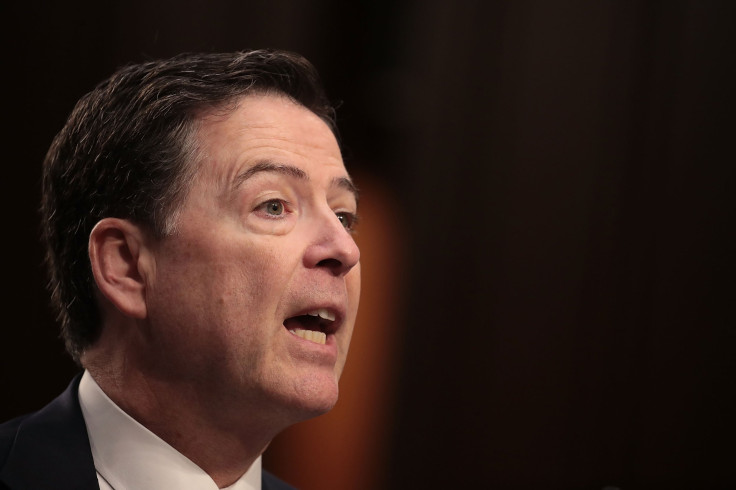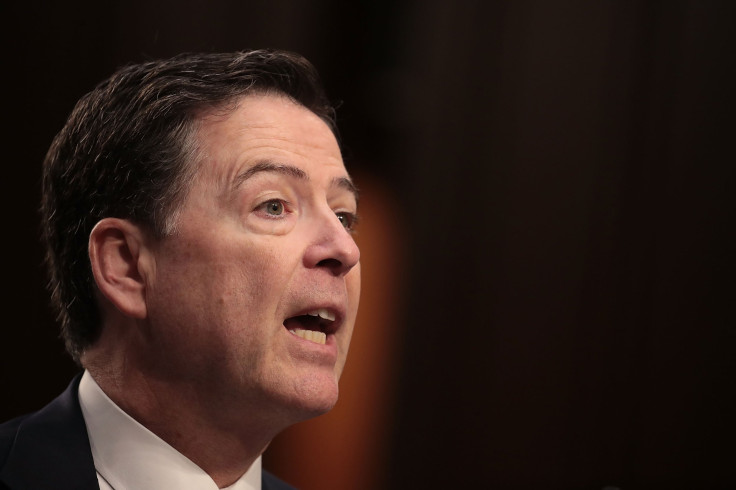What Does Defame Mean? James Comey Says Trump Lied

During testimony before the Senate Intelligence Committee Thursday, former FBI Director James Comey said President Donald Trump defamed him and the FBI and lied about the nature of his termination.
“Although the law requires no reason at all to fire an FBI director, the administration then chose to defame me, and more importantly, the FBI, by saying that the organization was in disarray, that it was poorly led, that the workforce had lost confidence in its lead,” Comey said. “Those were lies plain and simple. And I am so sorry that the FBI workforce had to hear them and I am so sorry that the American people were told them.”
Read: A Full Timeline Of Events Leading Up To James Comey’s Termination
Defamation, which can encompass both the written and spoken word, refers to any statements made that hurt a person’s reputation. In order to prove defamation, however, a person must demonstrate that four elements are present.

First, the statement must be published. Publication means a third party was present to hear the statement. Second, the statement must be provably false. Third, the statement must be “injurious.” To prove injury, a person must demonstrate their reputation was hurt by the statement. Fourth, the statement was be “unprivileged.” Privileged speech refers to that of lawmakers and those statements made in other special circumstances like testimony in court.
Comey’s allegations of defamation refer to the president’s statements about the FBI and Comey’s poor performance. Following his statement about Trump, Comey also apologized to his former employees.
“I am so sorry I didn’t get to say goodbye to you publicly,” he said.
Comey went on to discuss why he kept written records of his conversations with Trump, as he did not keep written memos of his conversations of meetings with past presidents like Barack Obama or George W. Bush.
“I was honestly concerned he may lie about the nature of the meeting,” Comey said.
Senate Intelligence Committee chairman Richard Burr emphasized the urgency of Comey’s testimony during the hearing.
“The American people need to hear your side of the story, just as they need to hear the president’s description of events,” said Burr. “Today is your opportunity to set the record straight.”
In his prepared remarks released Wednesday, Comey detailed his discussions with the president, revealing that Trump asked for “loyalty.”
“The President said, ‘I need loyalty. I expect loyalty,’” the statement said. “I didn’t move, speak, or change my facial expression in any way during the awkward silence that followed. We simply looked at each other in silence… He then said, ‘I need loyalty.’ I replied, ‘You will always get honesty from me.’ He paused and then said, ‘That’s what I want, honest loyalty.’ I paused and then said, ‘You will get that from me.’
Read: Full Text Of James Comey’s Testimony
Comey’s remarks also showed that Trump urged him to “let go” the investigation into former National Security Adviser Mike Flynn.
“The president then returned to the topic of Mike Flynn, saying, ‘He is a good guy and has been through a lot,’” the testimony read. “He repeated that Flynn hadn’t done anything wrong on his calls with the Russians, but had misled the vice president. He then said, ‘I hope you can see your way clear to letting this go, to letting Flynn go. He is a good guy. I hope you can let this go.’ I replied only that ‘He is a good guy.’”

© Copyright IBTimes 2024. All rights reserved.












